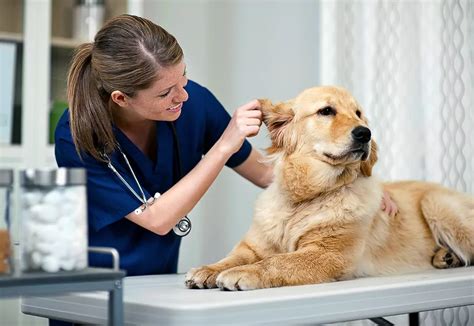As a veterinary technician, you're passionate about animals and dedicated to providing top-notch care. But have you ever thought of taking your skills on the road and exploring new places while helping animals in need? Travelling vet techs do just that, and it's an incredibly rewarding career path.
Imagine being able to travel to different parts of the country or even the world, immersing yourself in new cultures, and making a real difference in the lives of animals. As a travelling vet tech, you'll have the opportunity to work with various species, from companion animals to exotic wildlife, and gain valuable experience in different clinical settings.
Whether you're looking to break the monotony of a traditional vet tech role or simply want to see the world, travelling vet tech work can be an exciting and fulfilling adventure.
Benefits of Being a Travelling Vet Tech
Explore New Places and Cultures
As a travelling vet tech, you'll have the chance to explore new places, experience different cultures, and meet people from diverse backgrounds. You might find yourself working in bustling cities, rural towns, or even on remote islands. Wherever you go, you'll be immersed in new and exciting environments that will broaden your perspectives and enrich your life.

Gain Valuable Experience and Skills
Travelling vet tech work offers a wide range of opportunities to gain valuable experience and skills. You might work in different clinical settings, such as hospitals, clinics, or research facilities, and collaborate with veterinarians, researchers, and other animal care professionals. You'll also have the chance to work with various species, from companion animals to wildlife, and develop your skills in areas like surgery, anesthesia, and diagnostic imaging.
Develop Your Adaptability and Flexibility
As a travelling vet tech, you'll need to be adaptable and flexible. You'll encounter different working environments, protocols, and procedures, and you'll need to be able to adjust quickly. This will help you develop your problem-solving skills, think on your feet, and become more confident in your abilities.
Types of Travelling Vet Tech Jobs
Relief Vet Techs
Relief vet techs fill temporary positions in veterinary clinics, hospitals, and other animal care facilities. They might cover for staff members who are on vacation, maternity leave, or sick leave, or provide extra support during peak periods.

Locum Vet Techs
Locum vet techs work on a contract basis, often for several weeks or months, in specific locations. They might work in rural areas, remote communities, or other places where veterinary services are scarce.
Volunteer Vet Techs
Volunteer vet techs work with animal welfare organizations, conservation groups, and other non-profit organizations to provide veterinary care to animals in need. They might work in shelters, sanctuaries, or in the field, providing medical care and support to animals affected by disasters, cruelty, or neglect.
How to Become a Travelling Vet Tech
Get the Right Qualifications and Experience
To become a travelling vet tech, you'll need to have a strong foundation in veterinary technology. This typically includes a degree in veterinary technology, certification as a veterinary technician (CVT), and relevant work experience.

Build Your Skills and Knowledge
As a travelling vet tech, you'll need to stay up-to-date with the latest developments in veterinary technology. This includes attending conferences, workshops, and online courses to enhance your skills and knowledge.
Network and Join Professional Organizations
Networking and joining professional organizations can help you connect with other travelling vet techs, find job opportunities, and stay informed about industry developments.
Challenges of Being a Travelling Vet Tech
Being Away from Family and Friends
As a travelling vet tech, you'll often be away from family and friends for extended periods. This can be challenging, especially if you have close relationships or dependents.

Uncertainty and Unpredictability
Travelling vet tech work can be unpredictable, and you might face unexpected challenges or changes in your schedule.
Coping with Stress and Burnout
As a travelling vet tech, you'll often work long hours, manage high-stress situations, and deal with emotional demands. It's essential to prioritize self-care, manage stress, and maintain a healthy work-life balance.
Conclusion
Being a travelling vet tech can be a rewarding and exciting career path for those who are passionate about animals and adventure. With the right qualifications, experience, and mindset, you can explore new places, gain valuable skills, and make a real difference in the lives of animals.
We hope this article has inspired you to consider a career as a travelling vet tech. If you have any questions or comments, please feel free to share them below.






What qualifications do I need to become a travelling vet tech?
+To become a travelling vet tech, you typically need a degree in veterinary technology, certification as a veterinary technician (CVT), and relevant work experience.
What types of jobs are available for travelling vet techs?
+Travelling vet techs can work as relief vet techs, locum vet techs, or volunteer vet techs. They might work in veterinary clinics, hospitals, research facilities, or other animal care settings.
How do I find travelling vet tech jobs?
+You can find travelling vet tech jobs through online job boards, professional organizations, and networking with other vet techs. You can also consider working with recruitment agencies or staffing firms that specialize in veterinary placements.
